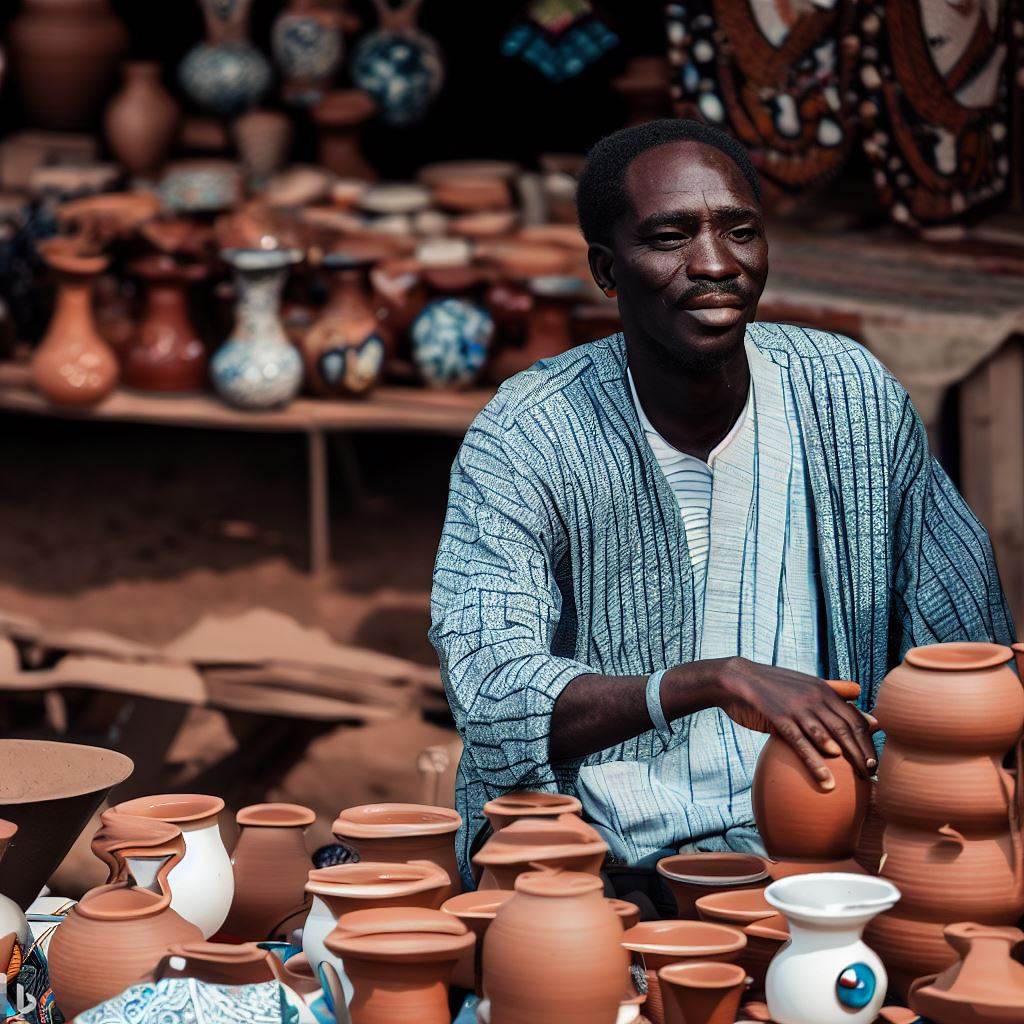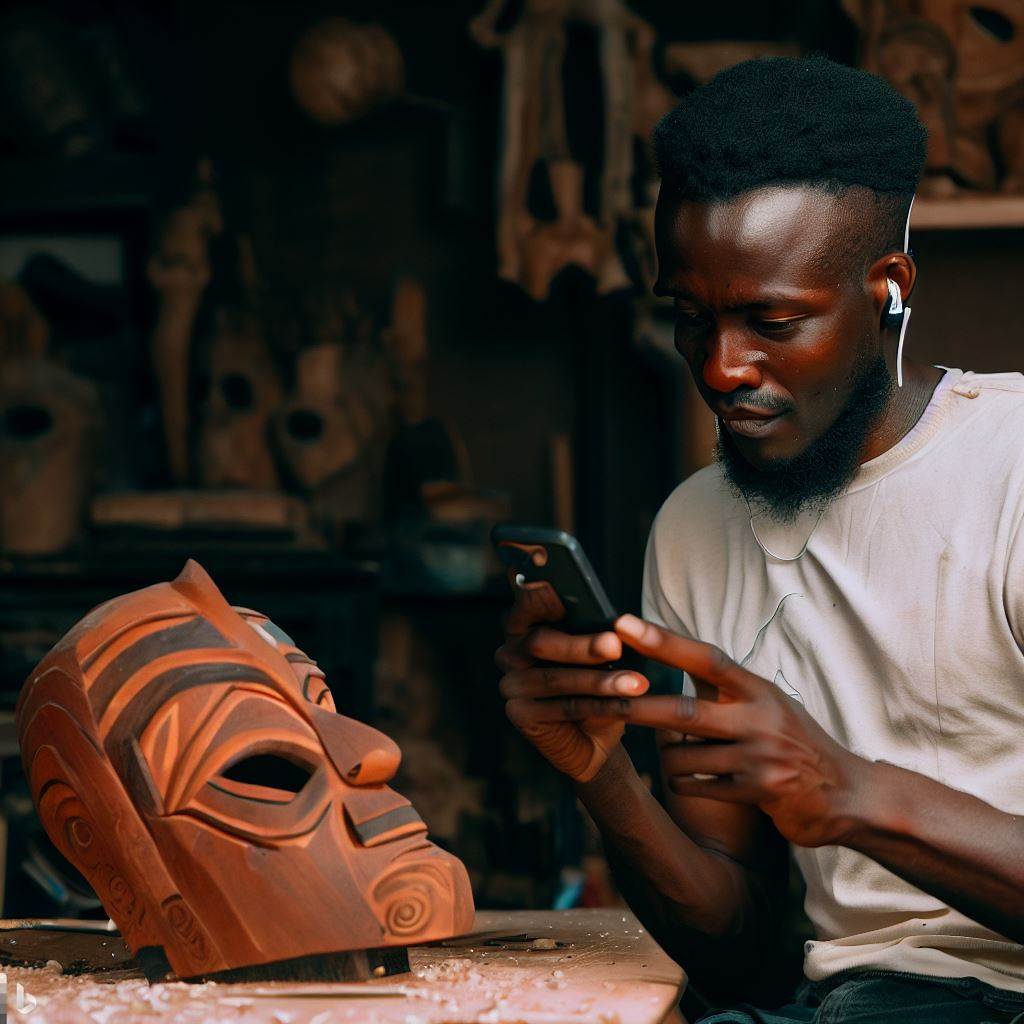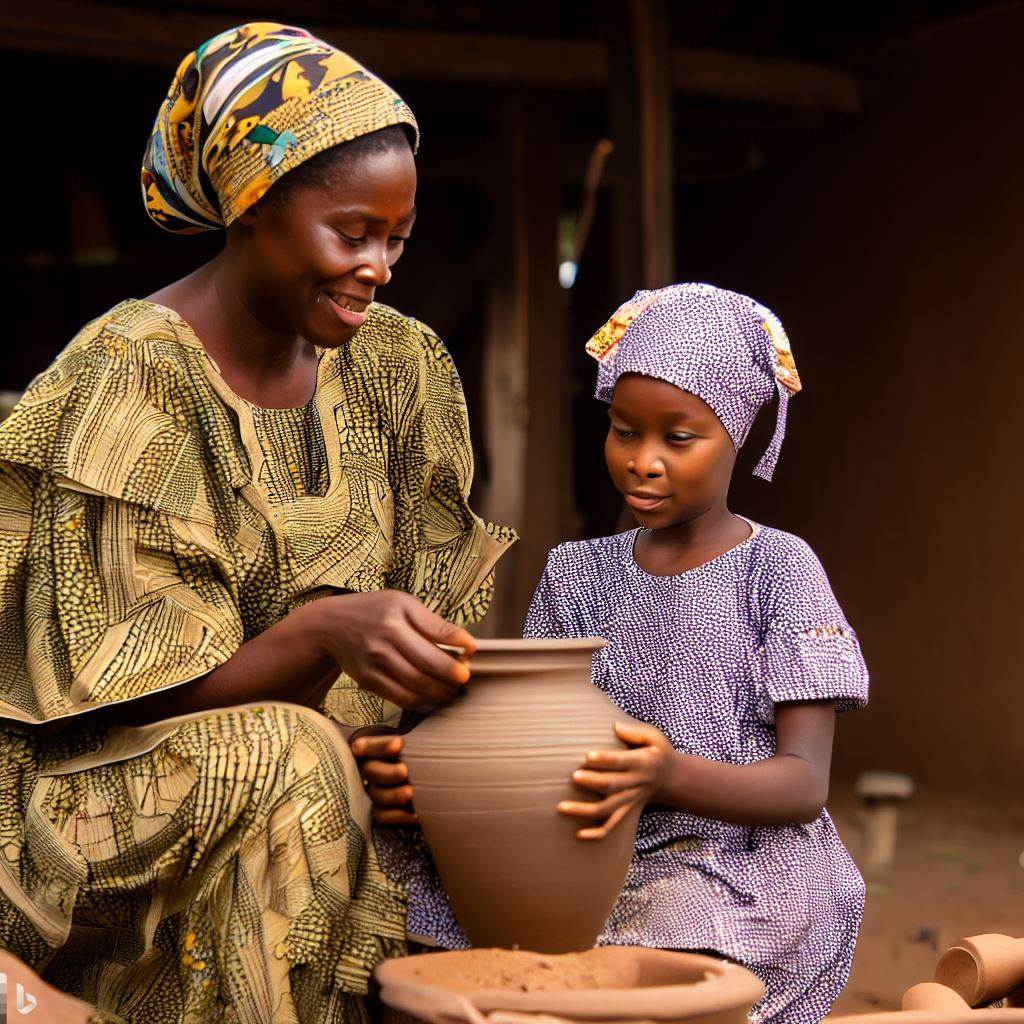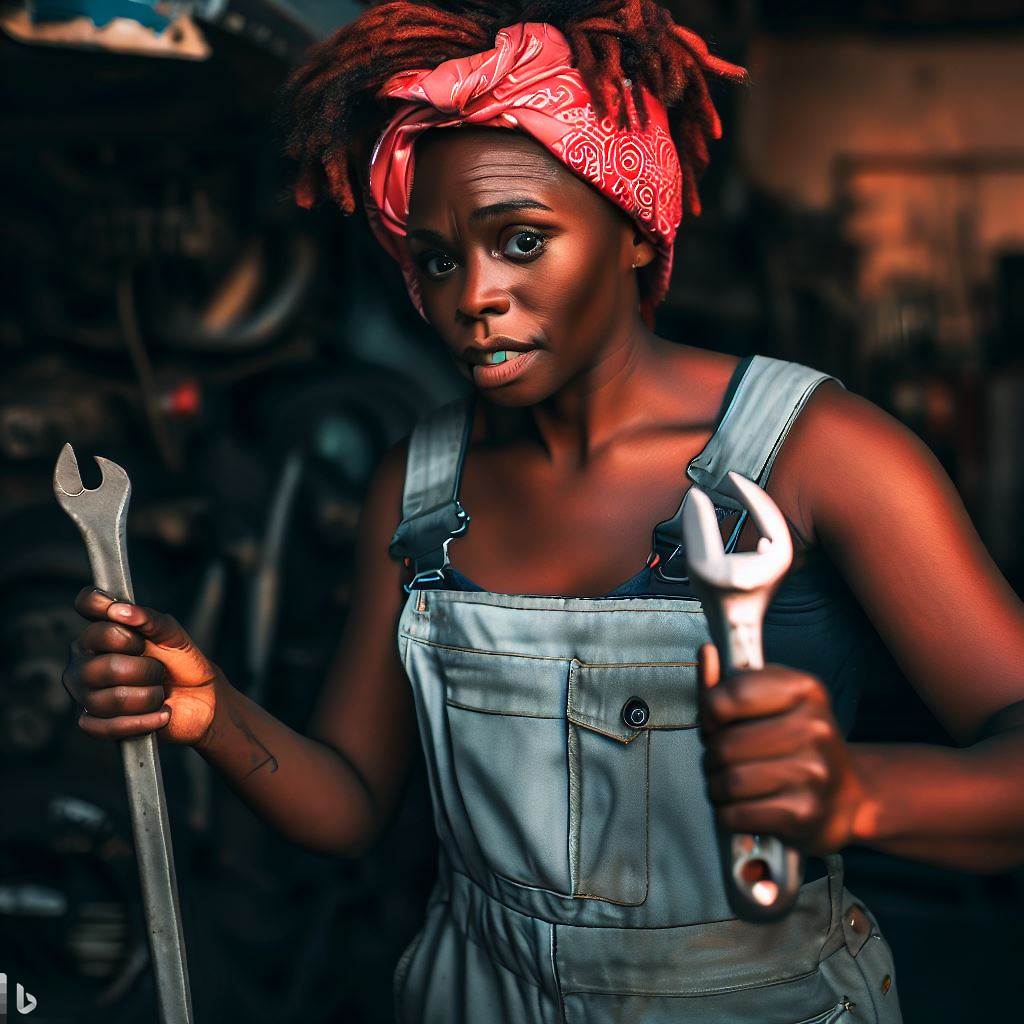Introduction
In Nigeria, women embracing trade skills is a transformative phenomenon. Significantly, they challenge societal norms and empower their communities.
- Nigerian women’s participation in trade skills paves the way for gender equality and economic growth.
- Breaking through gender barriers, they redefine traditional roles and inspire the next generation.
- Trade skills offer financial independence, raising living standards for women and their families.
- By excelling in carpentry, welding, and entrepreneurship, they dismantle stereotypes and prejudices.
- Their impact reaches beyond borders, fostering regional trade and promoting Nigeria’s development.
- Despite challenges, Nigerian women’s tenacity and resilience fuel their journey towards success.
- This blog explores their triumphs, the obstacles they face, and the path to a brighter future.
Read: Emerging Trade Skills Trending in Nigeria Today
Current State of Nigerian Women in Trade Skills
When it comes to the Nigerian workforce, women have long been underrepresented in the trades. However, in recent years, there has been a push to break down the barriers that prevent women from pursuing trade skills and entering traditionally male-dominated fields.
Statistics and Figures on Women in Trade Skills in Nigeria
According to the National Bureau of Statistics, women make up just 21% of the Nigerian workforce. Furthermore, only 3% of women in the Nigerian workforce are employed in trade, compared to 20% of men.
These numbers are striking, and they make it clear that there is a lot of work that needs to be done to create more opportunities for women in trade skills.
Analysis of Cultural Barriers Faced by Women in Pursuing Trade Skills
One of the biggest barriers to women entering trade skills in Nigeria is cultural norms and expectations. Traditionally, women are expected to focus on domestic duties and childrearing, while men are expected to be the breadwinners and work in male-dominated fields.
As a result, many women are discouraged from pursuing trade skills, and are told that they should focus on more “feminine” pursuits instead. This mindset is changing, but it is still prevalent in many communities throughout Nigeria, particularly in rural areas.
Another cultural barrier that women face in pursuing trade skills is the lack of female role models and mentors. When women don’t see other women in these fields, it can be difficult for them to envision themselves in those roles.
Additionally, women often face discrimination and harassment in the workplace, especially in male-dominated fields. This can make it difficult for them to advance in their careers, even if they are qualified and skilled.
Despite these challenges, there are women in Nigeria who are breaking down barriers and paving the way for others to follow in their footsteps. Women like Nneka Isaac Moses, who is the CEO of a welding company in Lagos, are showing that women can excel in traditionally male-dominated fields.
There are also organizations and initiatives that are working to create more opportunities for women in trade skills.
For example, the Women in Technical Education and Employment (WITED) organization is working to empower women in the technical and vocational education sector.
Overall, there is still a long way to go when it comes to creating more opportunities for women in trade skills in Nigeria. However, the progress that has been made so far is encouraging, and it shows that change is possible.
Read: Craftsmanship: The Backbone of Nigeria’s Cultural Heritage
Opportunities for Nigerian Women in Trade Skills
Breaking barriers in the trade skills industry, Nigerian women are making significant strides towards financial independence and autonomy. The Nigerian government, non-profit organizations, and private companies have created various initiatives to support and encourage women.
Here are some of the opportunities that Nigerian women can embark on to achieve financial stability and independence:
Government Programs and Initiatives
- The National Directorate of Employment (NDE) offers Vocational Skills Development programs for women
- The Nigerian Content Development and Monitoring Board (NCDMB) provides training and financial support for women in the oil and gas industry
- The Industrial Training Fund (ITF) offers training programs on trade skills for women in various sectors of the economy
Non-profit Organizations
- The Nigerian Women Association of Georgia (NWAG) provides vocational training and scholarships for women in Nigeria
- The Women’s Technology Empowerment Centre (W.TEC) offers technology and vocational training programs for girls and women across Nigeria
- The Women’s Consortium of Nigeria (WOCON) provides training and support on trade skills for women in rural and urban areas of Nigeria
Private Companies
- The Dangote Group offers apprenticeship and training programs for young women who wish to work in the manufacturing and construction industries
- The MTN Foundation provides training and financial support for women who are interested in trade skill-related businesses
- Procter and Gamble Nigeria offers vocational training programs for women who wish to pursue careers in the beauty and wellness industry
These initiatives have given Nigerian women the opportunity to gain skills and experience that will propel them to financial independence.
The government, non-governmental organizations, and private companies have recognized that women have a significant role to play in the growth and development of the country.
By providing training and apprenticeship opportunities, these organizations are investing in Nigerian women to enable them to contribute to the economy’s growth.
The benefits of investing in women extend beyond the individual to the society as a whole. When women are financially empowered, they can contribute to their families and communities’ growth and development.
The earnings from their businesses can help in providing for their children’s education, healthcare, and nutrition, creating a better future for their families and communities.
In summary, the Nigerian government, non-profit organizations, and private companies have recognized the importance of providing opportunities for women to help them achieve financial independence and empower them to contribute to the country’s growth and development.
By providing training and apprenticeship programs, Nigerian women can develop their skills and gain experience that will lead to financial stability and a better future for their families and communities.
Read: Mastering Trade Skills: A Path to Employment in Nigeria

Success Stories of Nigerian Women in Trade Skills
Nigerian women have been breaking barriers and making significant strides in trade skills despite the challenges they face.
In this section, we’ll share interviews with successful female tradespeople in Nigeria, stories of women who overcame cultural obstacles to pursue trade skills, and analyze the impact of successful women in trade skills on Nigerian society.
Interviews with Successful Female Tradespeople
Meet Adaobi, a successful female electrician in Lagos. Adaobi says, “I became interested in electrical work because it is challenging and requires a lot of critical thinking. I love the satisfaction that comes with solving problems.”
Adaobi is the founder of Wires & Cables Solutions, an electrical contracting company that provides installation and maintenance services.
We also spoke with Funke, a mechanic based in Abuja. Funke says, “I’ve always had a knack for fixing things, so when I learned about automotive repair, I knew that’s what I wanted to pursue.” Funke owns and operates Funke’s Auto Repair, a successful garage that caters to both individuals and corporate clients.
Stories of Overcoming Cultural Obstacles
Despite the progress made in recent years, Nigerian women still face significant cultural and societal challenges. Some women are discouraged from pursuing these careers because they are seen as male-dominated fields. Others face outright discrimination and harassment on the job.
However, some women have found ways to overcome these obstacles and pursue their dreams. Meet Bisi, who always loved carpentry but was discouraged by her family and friends. She eventually decided to follow her passion and became a carpenter.
Bisi says, “It was tough at first, but I got better with time and now run my own carpentry business.” Her business has gained a reputation for its quality work and excellent customer service.
Impact of Successful Women in Trade Skills on Nigerian Society
The success of women in trade skills has had a significant impact on Nigerian society, both economically and socially. Firstly, it has helped to decrease the gender gap in the labor force. Secondly, it has provided opportunities for women to earn a livable income and take care of their families.
Furthermore, the success of women in trade skills has challenged traditional gender roles and changed the narrative surrounding what women can do. Women who excel in these fields are role models for the younger generation, encouraging them to pursue their dreams and overcome societal obstacles.
In essence, Nigerian women in trade skills have been making strides despite the challenges they face.
Through interviews with successful female tradespeople, stories of women who overcame cultural obstacles, and analysis of the impact of successful women in on Nigerian society, we can see the immense value that these women bring to the table.
It is crucial that we continue to support and encourage them as they pave the way for future generations.
Read: Success Stories: Nigeria’s Notable Craftsmen
Uncover the Details: Trade Skills: Empowering Nigeria’s Youth Population
Conclusion
Throughout this blog, we have explored the incredible impact that Nigerian women in trade skills are making in their communities and beyond. The need for skilled tradespeople is greater than ever, and women in Nigeria are stepping up to fill that need.
We must continue to support and encourage Nigerian women in their pursuit of trade skills. By doing so, we can break down barriers and empower these women to not only support themselves and their families, but to also build stronger local and global economies.
As individuals and organizations, we can invest in education, mentorship, and networking opportunities for Nigerian women in trade skills. We can connect them with resources like apprenticeships, grants, and business loans. We can champion their successes and promote their work to a wider audience.
Let us all take action to support Nigerian women in trade skills. Together, we can help to create a more equal, prosperous, and just world for everyone.




